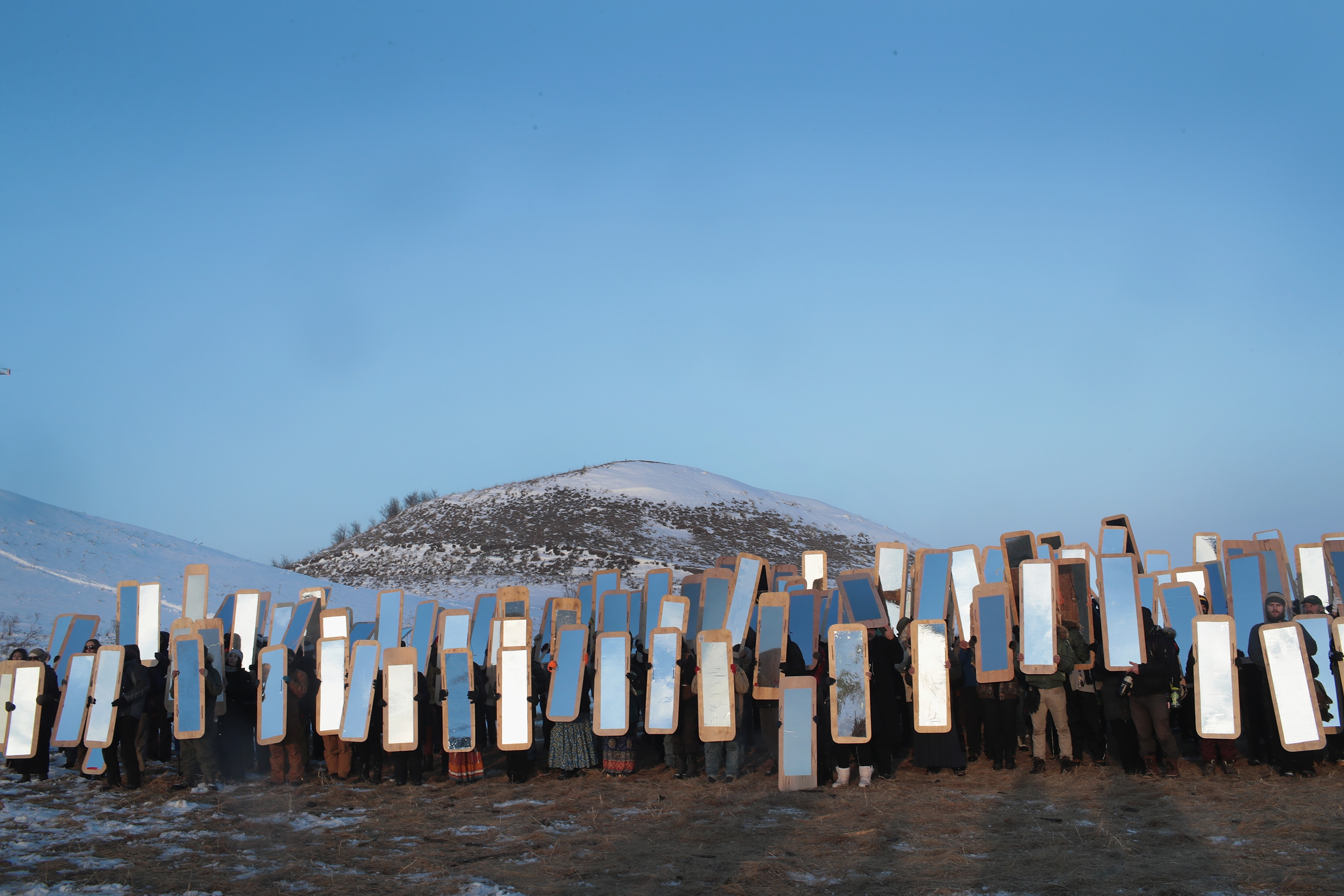Ryan Zinke’s announcement this past Thursday that his Department of the Interior would advise President Donald Trump to shrink “a handful” of different national monuments across the country wasn’t a surprise. It was a preordained conclusion.
The decision-making process behind the review lacked transparency from the start, with little indication of the criteria that would be used to determine the ultimate outcome. It stank of pure partisan politics from the moment it was announced in April. And so the determination to move forward with resizing certain monuments had the feeling of a fait accompli.
Democrats on the House Natural Resources Committee argued as much last week when they released a report that savaged the review as a shameless handout to fossil fuel interests and other industrial concerns.
“The review has been secretive. It has been opaque and it has been contrived,” says Representative Raúl Grijalva of Arizona, who is the ranking Democrat on the committee. “I say it’s contrived because the conclusion was already written.”
Titled “Fossil Apostles,” the report begins by discrediting the Trump administration’s claims that its monument review was merely a well-meaning attempt to respect local voices and encourage public participation in land management decisions. The report lists more than a dozen recent Republican-sponsored bills or resolutions in Congress that explicitly seek to limit public input on federal land management issues. Such items include the Resilient Federal Forests Act of 2017, a piece of industry-friendly legislation that clamps down on the public’s ability to influence timber management decisions on national forest lands, as well as Congress’ March repeal of the BLM Planning 2.0 rule, which sought to facilitate and strengthen public involvement in Bureau of Land Management affairs.
These legislative priorities, the report says, are a clear indication that the Trump administration and its Republican allies are not, in truth, concerned about respecting local voices and public participation in matters related to federal lands.
The report also points out that the American people overwhelmingly support national monuments. As a recent Colorado College poll makes plain, approximately 80 percent of voters in the American West favor leaving national monument designations in place, while only 13 percent favor removing such protections from public land. Meanwhile, as the Department of the Interior itself admits, the more than two million public comments submitted to it during the review were overwhelming pro-monument in nature, featuring sentiments like “Must we destroy everything?” and “Teddy Roosevelt had the right idea!”
All this might make you wonder: If this monument review is not about respecting public input, if it is not about favoring the voices of voters, then what is it about? Who is it meant to benefit?
The answer, the report asserts, is as clear as a clean trout stream: The review is about furthering the interests of the fossil fuel industry and other commercial enterprises, which, as we have reported before, staunchly oppose the Antiquities Act as well as other environmental regulations on the mineral-rich federal lands.

(Photo: Scott Olson/Getty Images)
Many of the leading players in the anti-national-monument push, including groups like the Sutherland Institute and Strata Policy in Utah, the Heritage Foundation in Washington, D.C., and the Property and Environment Research Center in Montana, are all flush with cash from dark money funds tied to the Koch brothers and allied petro-plutocrats.
Many of the Republican politicians most adamant in their opposition to the Antiquities Act, including Representative Rob Bishop and Senator Orrin Hatch, both of Utah, have taken hundreds of thousands of dollars in campaign contributions from the fossil fuel industry over the course of their careers.
And the Trump administration’s own actions—including its approval of the Dakota Access Pipeline, its rollback of the public land coal leasing moratorium, and Zinke’s robust schedule of meetings with fossil fuel executives—have quite convincingly illustrated that it prioritizes extraction interests above all else.
When I spoke to Grijalva, he was in Arizona, his home state, where Trump recently visited to hold a campaign-style rally, bash the press, and elaborate further on his Charlottesville remarks.
In his remarks, Grijalva made an interesting observation: As a brigade of corporate titans abandoned Trump earlier this month over his decision to equate violent white supremacists with those who oppose them, one group of powerful business interests stayed mostly mum.
“I can’t find one CEO, one executive of the energy production industry, oil, gas, or mining, not one has called Trump out on any of the comments he’s made since Charlottesville,” Grijalva says. “I think their silence indicates that they are getting done what they want done.”




